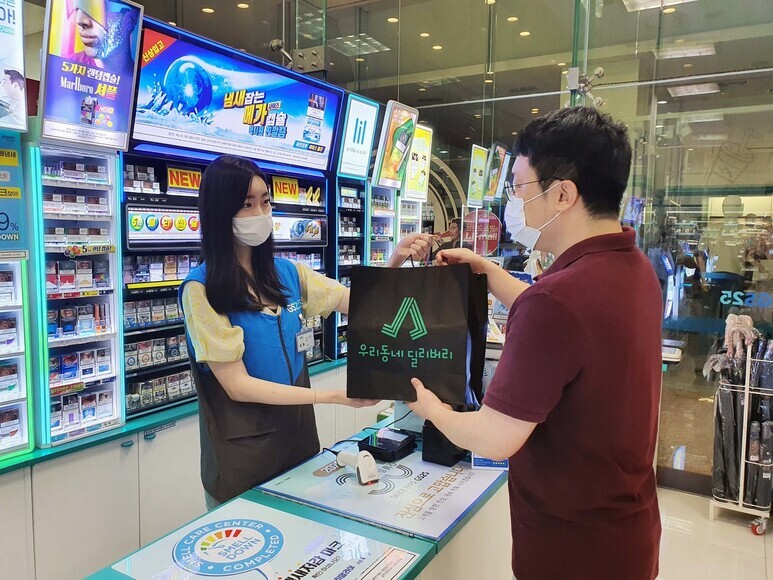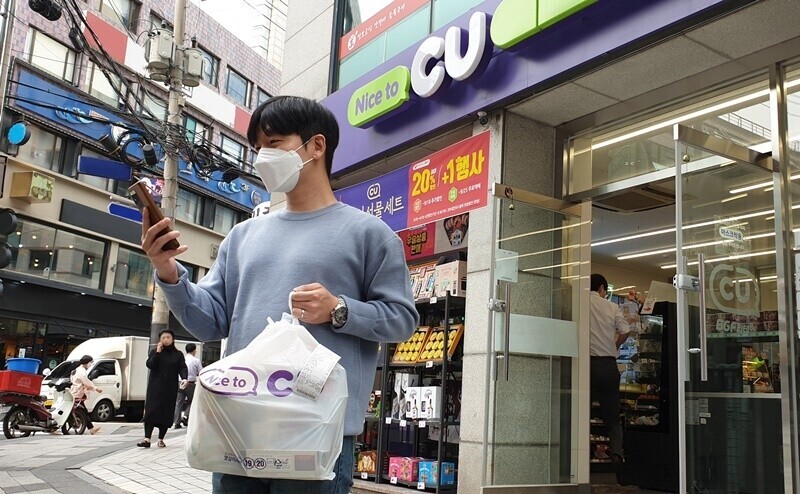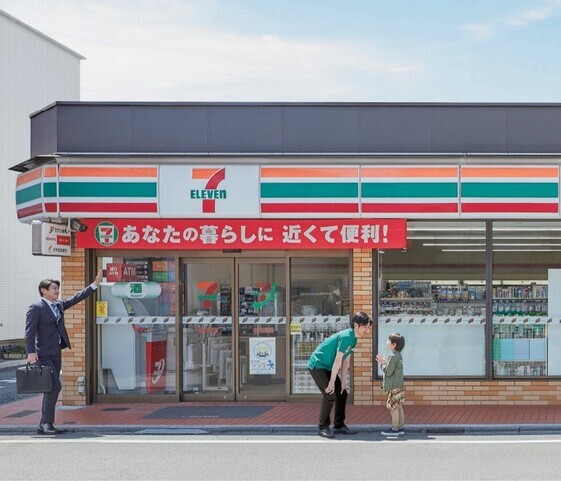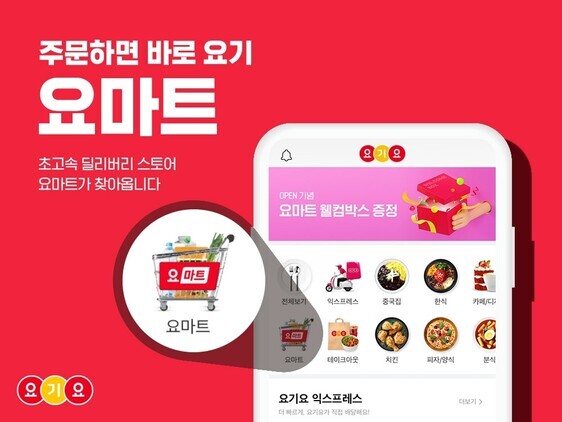
GS25 launched its on-foot delivery platform Uri Dongne Delivery for deliveries within 30 minutes to locations within a 1.5km radius in August. (provided by GS25)
“Thirty-minute deliveries” represent a growing trend in South Korea among offline retail businesses in particular.
The phenomenon appears to be a response to the onslaught from e-commerce businesses like Coupang, which have grown rapidly thanks to their same-day and overnight delivery services. A rise in overall delivery demand amid the COVID-19 pandemic is also being seen as a factor behind the offline businesses’ new focus on 30-minute deliveries.

CU provides an on-foot delivery service to locations within 30 minutes by foot. (provided by CU)
Convenience stores have been at the forefront of the 30-minute delivery services. On Oct. 5, BGF, the company behind CU convenience stores, announced that it was joining forces with the on-foot delivery company MG Playing to provide 30-minute on-foot delivery services to locations within a 1km radius of its stores. Over a month earlier in late August, GS25 launched the on-foot delivery platform “Uri Dongne Delivery” for deliveries within 30 minutes to locations within a 1.5km radius.
The reason convenience stores have been adopting 30-minute delivery systems one after another is because they see demand as growing -- meaning there is that large of a customer base looking to receive necessary items quickly, even if it means shouldering a delivery surcharge of around 3,000 won (US$2.60). A GS25 employee said, “Between Sept. 28 and Oct. 4, the number of deliveries rose to six times what it was early in the system’s adoption.” CU, which had been offering motorcycle delivery services before adopting 30-minute on-foot deliveries, similarly noted that “delivery orders were up by 90% between July and August, and doubled again in September.”

A 7-Eleven branch in Japan. (provided by 7-Eleven Japan)
Another factor in the convenience stores’ focus on 30-minute deliveries is the rapid growth of e-commerce businesses like Coupang and Market Kurly based on fast delivery services. Seo Yong-gu, a professor of business administration at Sookmyung Women’s University, explained, “Since the items sold by small-scale retail businesses are more or less the same, the focus of competition among online and offline retail businesses has recently shifted to deliveries.”
“Things like 30-minute delivery services have emerged in an environment where the companies that deliver the fastest become the market winners,” he said.
Questions over sustainability with costs outweighing profits and safety issues
But experts have also raised questions about the approach’s sustainability. With the large costs associated with shorter delivery times, the likelihood of a money-losing competition among businesses ensuing is high. Jung Yeon-sung, a professor of business administration at Dankook University, said, “This [30-minute delivery approach] seems to originate less in the needs of customers than in the intensifying competition among businesses.”
“It will cost a lot of money to sustain this kind of business model, and in the intermediate to long term we’re likely to see this kind of ‘speed competition’ wane, with deliveries that yield a suitable profit like in the US,” he predicted.

An ad for Yogiyo’s Yomart service. (provided by Delivery Hero)
While the convenience stores’ 30-minute delivery services are provided on foot, those of the delivery apps are provided by motorcycle. Delivery Hero, the company that runs the delivery app Yogiyo, has test-launched its first “Yomart” service, with 30-minute motorcycle deliveries of daily essentials within a 3km radius of its distribution center in Seoul’s Gangnam region. This points to some lurking safety issues behind the fast deliveries. Indeed, 30-minute delivery services previously adopted by fast food restaurants and other businesses were discontinued around 2017 amid a spate of accidents.
By Shin Min-jung, staff reporter
Please direct comments or questions to [english@hani.co.kr]







